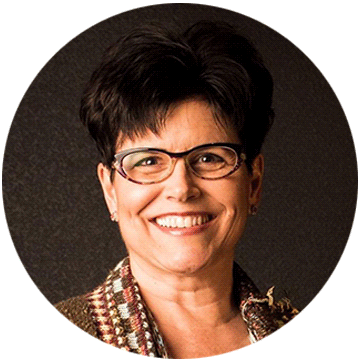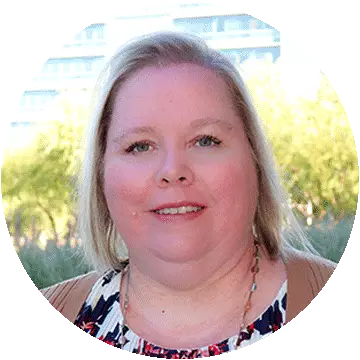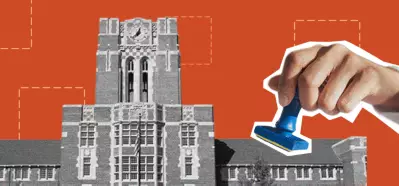You’ve applied. Now what?

Written by Laurie Davies

You made the big decision to apply to University of Phoenix. Now what?
We know you have questions — and your questions have answers! Here, three UOPX admissions personnel weigh in on what you should know (and do!) in the days and weeks after applying.
Meet the team

Devin Andrews: Vice President, Office of Admissions & Evaluation

Jennifer Burrell: Vice President, Enrollment Operations

Jared Wallentine: Senior Product Manager
Your questions, answered
Here's what you need to know to prepare for your new life as a Phoenix.
Q: How do I get my transcripts over to University of Phoenix?
Andrews: In most cases, we can request your official transcripts from prior institutions on your behalf. Some institutions won’t allow a third party to request transcripts, and we can’t request transcripts from schools outside the U.S. But often we can help you with this step at no cost to you.
Q: Do I have to wait for my transcripts to start classes?
Burrell: Your first classes don’t usually depend on what you’re transferring in, so if you’re ready to get started, you can. We do understand students want to know how many credits they need to graduate, so, in some cases, we can do a pre-evaluation of transcripts. If you haven’t applied to the University, we can also offer an estimate of how many prior credits you may be able to transfer into your degree, with no obligation to enroll.
Q: Can someone help me understand my financial options?
Burrell: Yes! We are here for you. From understanding upcoming changes to FAFSA and exploring federal grants and loans, to discovering how to save on tuition through scholarships and employer tuition benefits, to assessing how your prior work and life experience might help you save time and money, your enrollment representative will help you develop a plan for paying for your education.
You can connect directly with a finance advisor by calling 888-346-8678 or by email.
Q: How can I make sure I’m taking advantage of all the savings I’m eligible for?
Andrews: Our new Savings ExplorerÒ tool is a great place to start. Some applicants may be eligible to receive credits for training, certifications, and work or life experience. Others may want to take national tests for college credit. And others may want to explore self-paced alternative courses that can translate to tuition (and time) savings.
Military-affiliated students may also be eligible for credit based on their military training.
Using the Savings Explorer tool, just check the applicable boxes to see how much you might save (based on how much other students saved with your selections), and then talk to your enrollment representative.
One other note: If you have professional experience, our competency-based programs allow you to earn your degree faster and for less. A competency-based program allows you to spend less time on material you already know (by taking competency assessments that allow you to demonstrate your knowledge) and more time on new subject matter.
Q: What about technology? Do I need a laptop? What about software?
Burrell: You will need a desktop computer, a laptop or regular access to a computer to complete your course assignments.
If you need to purchase a laptop, we can help with a laptop discount code. Regarding software, Microsoft 365 is provided at no additional cost to all active students. For help downloading software or making sure your operating system or web browser are compatible, schedule a personalized onboarding appointment. In fact, I recommend this for every new student because it’s a great way to explore the essentials of going to school online.
Many students also find it convenient to use their phones for listening to lectures or responding to discussion questions — especially when they’re fitting school into lunch breaks or their kids’ soccer games.
Q: How do I decide on a start date?
Wallentine: The nice thing about University of Phoenix is that you won’t have to wait for traditional August or January semester start dates. If you’re an incoming bachelor’s degree student, you can explore up to 20 opportunities a year to begin your degree. After you have financial clearance, connect with your enrollment representative at 602-544-3737 to decide when you will begin your first day of class. From there, we’ll get you registered.
Q: Is there a new student orientation?
Burrell: Yes, and I highly recommend taking it! You’ll learn all about your new online classroom setup. It takes between 30 and 60 minutes to complete, and we have data that shows that students who take the new student orientation have a higher course completion rate.
You can also attend a new student webinar (look for details in an email) or check out the University of Phoenix 101 video guides.
Q: How do I keep track of all of this?
Wallentine: Don’t worry — we’ll help you. We encourage you to bookmark MyPhoenix, which is your student portal. It’s where you’ll find tasks or alerts that need your attention, such as ordering transcripts, if that’s something we were unable to do for you. It’s also where you can view your schedule, view your courses (Thursday or Friday prior to your start date) and stay on top of your academic plan.
Q: What other resources are available to me?
Wallentine: As you move into student life, the University offers many resources to help you stay on track in school — and in life.
Active students can access at no additional cost the Center for Writing Excellence and the Center for Mathematics Excellence through their student portal. The iGrad money management tool is also available at no additional cost.
Facebook study sessions help build a sense of community with other students. Students can also access the Life Resource Center, which offers life coaching, counseling and resources, such as podcasts, webinars and articles that can help you navigate life’s challenges.
Accommodations are also available for students with disabilities, and military service members, veterans, and military spouses and dependents enjoy special tuition rates and support.
Q: What other advice do you have for a student who’s just getting started?
Burrell: My best piece of advice is to start thinking now about time management. It’s easy to think, “It’s online. I can go in and work on school anytime.” This is true, but when is that “anytime” for you? Is it 8–10 p.m. on Tuesday, Wednesday, Thursday and Saturday? What are those times you’ll set aside to fit school into your life to really be successful?
Wallentine: Read everything. Read your onboarding emails. Read your syllabus. Read your work before you turn it in. You’ll get more out of school if you stay on top of everything.
Andrews: Remember, starting school — again or for the first time — can be overwhelming. You can ease into all of this. If you have questions, ask! Your enrollment representative or academic counselor is here for you.

ABOUT THE AUTHOR
A journalist-turned-marketer, Laurie Davies has been writing since her high school advanced composition teacher told her she broke too many rules. She has worked with University of Phoenix since 2017, and currently splits her time between blogging and serving as lead writer on the University’s Academic Annual Report. Previously, she has written marketing content for MADD, Kaiser Permanente, Massage Envy, UPS, and other national brands. She lives in the Phoenix area with her husband and son, who is the best story she’s ever written.
This article has been vetted by University of Phoenix's editorial advisory committee.
Read more about our editorial process.
Read more articles like this:


